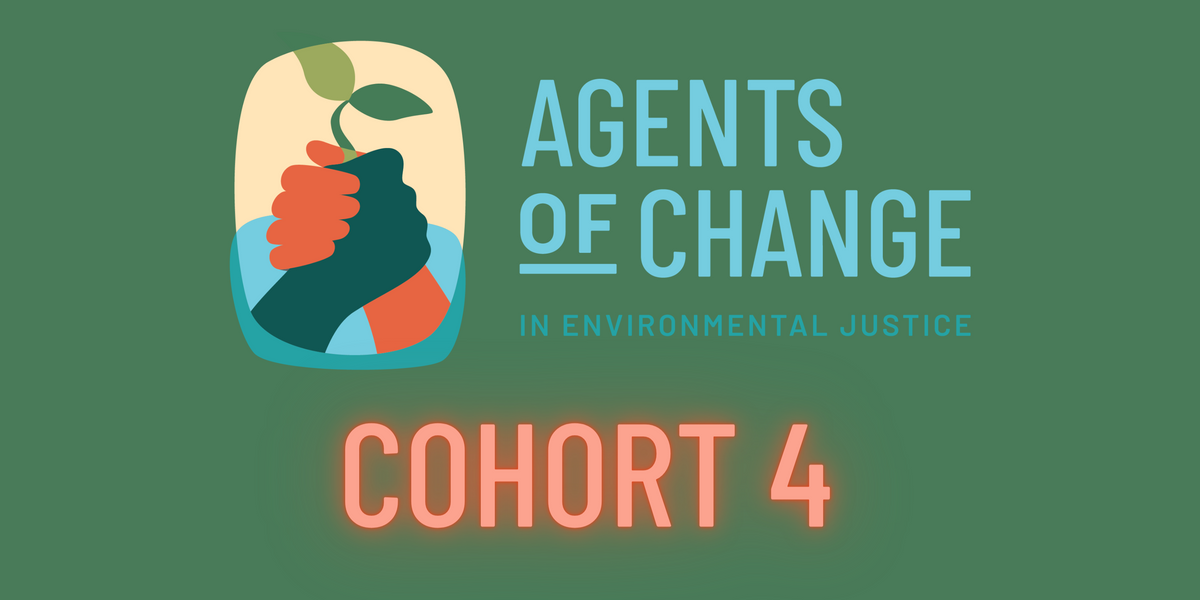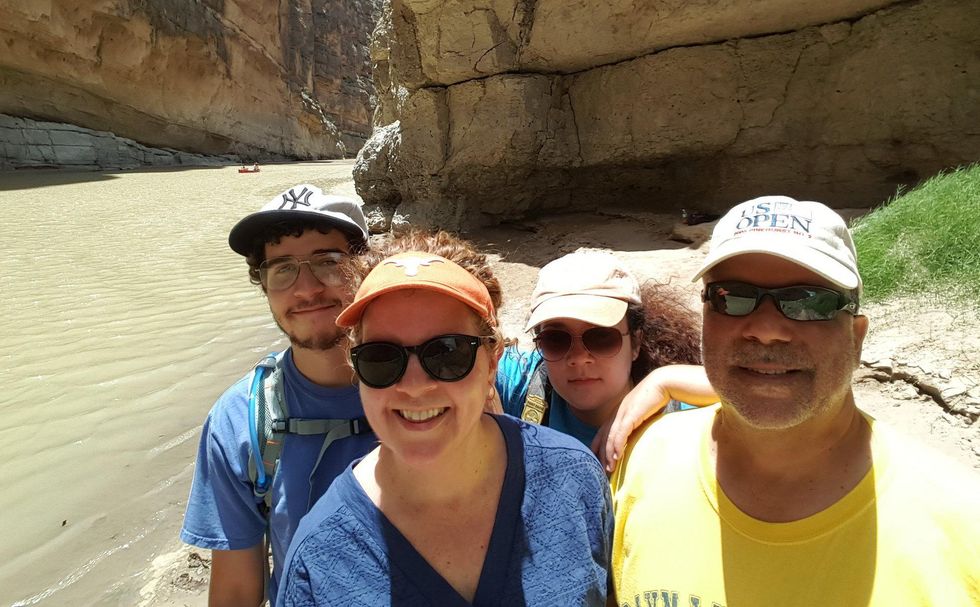
21 February
Agents of Change: 2022-2023 Cohort
Read the ideas and solutions from our fourth cohort.
2022-2023 Cohort
Public lands are not neutral. We must grapple with their racist roots
 Credit: Carolyn E. Ramírez
Credit: Carolyn E. Ramírez
Read the ideas and solutions from our fourth cohort.
 Credit: Carolyn E. Ramírez
Credit: Carolyn E. Ramírez“This award represents a continued commitment to invest in a natural gas industry that has added to the pollution and health burdens in the region.”
PITTSBURGH — On July 31, the federal government announced $30 million of funding for the Appalachian Regional Clean Hydrogen Hub, or ARCH2, which plans to create hydrogen from natural gas and other sources.
ARCH2 is one of seven planned, federally funded hydrogen hubs across the country, and one of two (along with the Gulf Coast hub) that will rely primarily on fossil fuel sources rather than renewables to create hydrogen.
The $30 million award represents the first round of funding for ARCH2, with a total of $925 million available for this project over the next seven to twelve years. In total, the seven planned hydrogen hub projects are slated to receive $7 billion in federal funding.
The $30 million will be used to “solidify planning, development, and design activities around site selection, technology deployment, community benefits and engagement, labor partnerships, and workforce training,” according to the U.S. Department of Energy (DOE).
The announcement comes just weeks after Pennsylvania governor Josh Shapiro signed into law a controversial bill allowing carbon capture and storage in the state, which will be required for the development of the hydrogen hub.
The award announcement frustrated local environmental and community advocates, who say the DOE has not been transparent about the details of the project, its climate and economic benefits, or its potential to add pollution and cause health harms in environmental justice communities that are already overburdened with existing pollution sources.
“This award represents a continued commitment to invest in a natural gas industry that has added to the pollution and health burdens in the region while failing to deliver any measurable growth in jobs, income and population,” Sean O’Leary, senior researcher with the Ohio River Valley Institute, a progressive think tank, said in a statement.
Earlier this year, the Ohio River Valley Institute delivered a letter to the DOE on behalf of 54 Appalachian organizations and community groups calling for the suspension of ARCH2. The letter called on the DOE to release additional information about the projects and offer impacted communities more meaningful opportunities for engagement prior to awarding additional funds — neither of which has happened, according to the organizations that signed the letter.
“Affected communities know little about the proposed projects and their impacts,” the No False Solutions PA Coalition said in a separate statement about the award. “Nevertheless, millions of dollars are being awarded to projects that will surely impact our health and environment BEFORE affected communities have had a chance to weigh in.”
Critics of the ARCH2 project say that carbon capture and storage technology hasn’t yet proven effective as a climate solution and it remains unclear whether hydrogen energy will abate or worsen climate change.
“There’s been a lot of talk about how hydrogen will be a cleaner energy source, but that overlooks the entire picture which includes reliance on the natural gas industry, which we know pollutes and harms communities and drives climate change with methane leaks,” Talor Musil, a field manager with the Environmental Health Project, a public health nonprofit, told EHN.

Azerbaijan will host this year's global climate summit, COP29, highlighting the country's complex position as a major oil and gas producer amidst calls for reducing fossil fuel dependency.
In short:
Key quote:
“If the European countries are against gas, then why do they request more from Azerbaijan?”
— Mukhtar Babayev, COP29 president
Why this matters:
As climate change worsens, countries like Azerbaijan face challenges in balancing economic reliance on fossil fuels with the urgent need for climate action. The summit will test Azerbaijan's ability to contribute to global climate efforts and navigate its economic dependencies.

Chevron is relocating its headquarters from California to Texas, citing challenges with the state's regulatory environment for businesses, particularly regarding fossil fuels and environmental policies.
David Wethe, Karen Breslau, and Kevin Crowley report for Bloomberg.
In short:
Key quote:
“We’ve had some policy differences with California, but this isn’t a move about politics. It’s a move about what’s good for our company to compete and perform.”
— Mike Wirth, CEO of Chevron
Why this matters:
Chevron’s decision highlights the impact of regulatory environments on business operations and strategic decisions. This shift may affect California's economy and workforce, as well as future regulatory discussions.
Related EHN coverage:

Senators Joe Manchin and John Barrasso's new energy bill proposes speeding up permits for renewable energy transmission but requires concessions for fossil fuel projects.
In short:
Key quote:
“This bill does not need to sacrifice anyone. In fact, it should sacrifice no one and serve everyone.”
— Jasmine Jennings, senior legislative counsel at Earthjustice
Why this matters:
Balancing the need for clean energy infrastructure with fossil fuel interests is a significant challenge in the U.S. energy transition. The proposed bill highlights the difficulty of achieving bipartisan support while addressing environmental concerns.
Lithium-ion batteries are now found in many everyday gadgets, but they are not always the best choice for reliability and environmental impact.
In short:
Key quote:
“Lithium-ion batteries have not been designed for end of life.”
— Jim Puckett, executive director of Basel Action Network
Why this matters:
The reliance on lithium-ion batteries for everyday devices creates unnecessary waste and ecological harm due to the challenges of recycling these batteries. Reassessing the need for rechargeable batteries in certain gadgets could lead to more sustainable consumer habits and better product reliability.

A significant number of newly elected UK MPs have backgrounds in lobbying and consultancy for oil and gas companies, leading to concerns about potential industry influence on policy-making.
In short:
Key quote:
“Part of what stops this transition from occurring is the embedded influence of the fossil fuels industry in politics.”
— Carla Denyer, Green Party co-leader
Why this matters:
The fossil fuel industry's influence over UK MPs could delay crucial policy changes needed to combat climate change. This raises concerns about the UK's ability to transition to renewable energy and meet its environmental goals.

A lack of regulation on power lines used by oilfield operators in Texas has led to several wildfires, with state agencies unable to enforce safety standards.
Emily Foxhall, Jayme Lozano Carver, and Carlos Nogueras Ramos report for The Texas Tribune.
In short:
Key quote:
“I don’t need to do their job too, but that’s basically what I’m having to do in order to get change.”
— Craig Cowden, ranch owner
Why this matters:
Unregulated oilfield power lines pose a significant fire hazard in Texas, threatening lives, property and the environment. Regulatory gaps leave residents vulnerable and underscore the need for clearer oversight and accountability in energy infrastructure safety.
Peter Dykstra – newsman, provocateur, friend and former publisher of The Daily Climate – passed away Wednesday.
“We know this is a business, and you want to make a profit, but consider the communities next door.”
Currently, the federal data on extreme heat and wildfire smoke itself constitutes a major disaster.
“If we’re concerned about healthy pregnancies, focusing on the period before pregnancy may be even more important.”
Power shutoffs or wildfire evacuations can be deadly for disabled people, especially nondrivers who may not have a way to get to a cooling center or evacuation point.
“Because of its purchasing power … the Federal Government has the potential to significantly impact the supply of these products.”